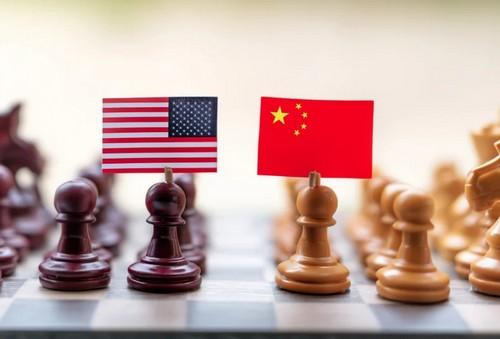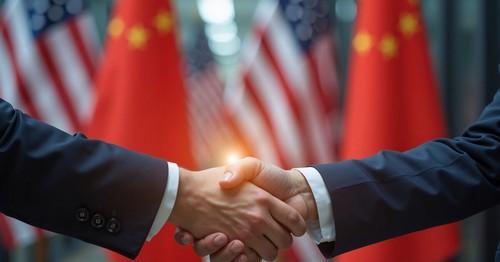
Mechanisms lay basis for sustainable China-US relations
Ding Gang
Among all the reports on the latest US-China talks in Geneva, one detail stands out: Both sides agree to establish an economic and trade consultation mechanism.
While this may seem routine, it represents a sober acknowledgment of recent years marked by confrontation and estrangement. As a Chinese journalist who has been following China-US relations for many years, I witnessed the beginning of the establishment of mechanisms between China and the US in 2002 and 2003.
In history, China and the US have developed many dialogue frameworks and specialized working groups – spanning economics, diplomacy, security, law enforcement, technology, environmental protection, and more. Looking back, 2002 was a pivotal year. After the 9/11 attacks, the US re-evaluated its relationship with China, recognizing that its most urgent enemy was international terrorism, not Beijing.

When Washington started the trade war, the US, labeling China a “strategic competitor,” quickly dismantled this vast architecture of mechanisms.
Has China become an “enemy” of the US? It is clear that Washington has taken such a simple, crude and hegemonic approach because of its self-created fear and anxiety about China’s rise. This is what is called using strength to talk about trade and other issues with China. Washington has abandoned engagement in favor of a tough, unilateral approach, shelving or discarding one dialogue channel after another.
That’s why even a fragile restart from Geneva – amid many risks – is such a significant step forward in the relationship between the world’s two largest economies.
Time has since revealed the limitations of such thinking. “Decoupling” and unilateral pressure have done little to ease American anxieties. Instead, they fueled mistrust and friction, disrupted global supply chains, rattled markets and eroded confidence in the international order.
Re-engaging in dialogue and rebuilding mechanisms is actually a sign of pragmatic recognition of reality.
Why are mechanisms so crucial in China-US relations? Because what we are facing today is an unprecedented form of significant power interaction. This isn’t a cold war-style zero-sum rivalry, nor is it a simple changing of the guard at the top of the global hierarchy. It demands something new – a way to manage competition and cooperation through stable, predictable channels.
The US and China are vital to global stability, each with enormous influence and deep mutual dependence. From climate change and financial security to emerging technologies and public health, the world’s toughest challenges cannot be tackled without both countries at the table and without mechanisms to facilitate communication and coordination. Old habits – seeing every move as a win-lose calculation, prioritizing national self-interest over the common good – will only make both countries and the whole world pay the price.
The value of mechanisms is precisely in channeling confrontation into constructive, rules-based and flexible engagement. Regular dialogue – however procedural it may appear – prevents minor disputes from escalating, keeps tensions within manageable limits and opens up new avenues for cooperation.
Mechanisms provide the only practical way to implement core principles such as mutual respect and equal consultation. Without this framework, normalized, predictable relations between the two countries will remain elusive.
Meanwhile, the talks in Geneva mark only a tentative beginning. The ground beneath remains fragile, easily shaken by future gusts of tension. However, it is worth noting that this change emerged after an unsuccessful attempt to exert unilateral pressure and replace the original mechanism.
Renewed dialogue isn’t just about returning to the status quo – it’s about moving forward with a new understanding and commitment to shared responsibility. The long-term future of the China-US relationship is like two ships sailing in a broader sea: It needs a navigation system of robust mechanisms to avoid the rocks and steer toward broader horizons and wider understandings.
The writer is a senior editor with the People’s Daily and currently a senior fellow with the Chongyang Institute for Financial Studies at the Renmin University of China
